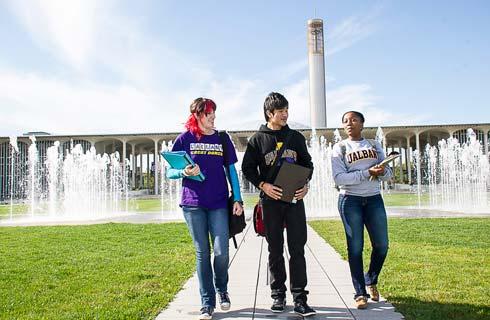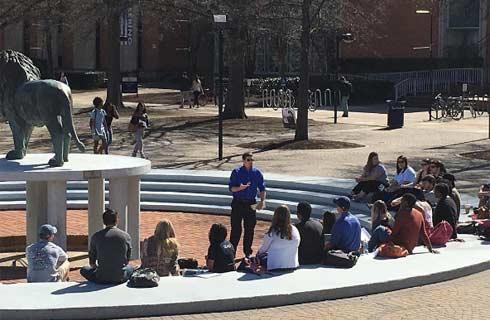MSc Biomolecular Archaeology

学历文凭
Masters Degree (Taught)

专业院系
The School of Medicine, Medical Sciences and Nutrition

开学时间

课程时长

课程学费

国际学生入学条件
2:2 UK Honours degree, or an Honours degree from a non-UK institution which is judged by the University to be of equivalent worth in archaeology (or a related discipline such as anthropology, earth sciences, or history), biological or medical sciences.
IDP—雅思考试联合主办方

雅思考试总分
6.5
- 雅思总分:6.5
- 托福网考总分:90
- 托福笔试总分:160
- 其他语言考试:PTE Academic: OVERALL - 62 with: Listening - 59; Reading - 59; Speaking - 59; Writing - 59; Cambridge English B2 First, C1 Advanced or C2 Proficiency: OVERALL - 176 with: Listening - 162; Reading - 169; Speaking - 162; Writing - 169.
CRICOS代码:
申请截止日期: 请与IDP联系 以获取详细信息。
课程简介
相关申请
 预科
预科 奖学金
奖学金 实习机会
实习机会 在校学习
在校学习 跨境学习
跨境学习 校园授课-线上开始
校园授课-线上开始 在线/远程学习
在线/远程学习
开学时间&学费
学费信息仅供参考,请与IDP联系以获取详细信息
| 开学时间 | 时长 | 学费 | 地点 |
|---|
学校排名

世界排名158
数据源:
泰晤士高等教育世界大学排名
关于阿伯丁大学

阿伯丁大学成立于1495年,是英国第五古老的大学,并在2026年《卫报》大学指南中位列英国大学前20强。该校在医学、营养学、化学和物理学领域共获得五项诺贝尔奖,其突破性的研究和创新至今仍在持续。2021年,该校因在土壤科学领域的研究和教学而荣获英国高等教育最高荣誉--女王周年纪念奖。阿伯丁大学拥有四座图书馆,其中包括令人惊叹的邓肯·赖斯爵士图书馆,该图书馆被评为世界上最美丽的图书馆之一(CEOWORLD杂志,2016)。一个最先进的科学教学中心于2022年开放,为化学、医学和地球科学提供专业教学、培训和设施。设施还包括符合奥运会标准的阿伯丁运动村和水上运动中心。阿伯丁位于风景秀丽的苏格兰东北部,是一座充满活力、国际化的都市,拥有丰富的文化和历史底蕴,四周环绕着迷人的乡村风光和绵延数英里的沙滩。该市已连续12年荣获英国''紫旗奖''(Purple Flag),这是英国表彰市中心安全和活力的一项享有盛誉的奖项,也是苏格兰唯一获此殊荣的城市。该大学欢迎来自130个国家的14000多名学生组成的多元化社区。有三个校区:阿伯丁的国王学院校区和福雷斯特希尔医学院,以及卡塔尔多哈阿伯丁大学的AFG学院。该大学与全球合作大学开展国际交流项目,并提供一系列在线学位和短期课程.阿伯丁大学为学生提供了广泛的奖学金,旨在帮助学生在大学期间自食其力。
本校相关课程
其他相关课程

国家土著研究中心哲学博士
 澳大利亚国立大学
澳大利亚国立大学学历文凭
Ph.D.
开学日期
课程费用总额


芬纳环境与社会学院哲学硕士
 澳大利亚国立大学
澳大利亚国立大学学历文凭
Masters Degree (Research)
开学日期
课程费用总额


社会科学学士(荣誉学位)
 纽卡斯尔大学
纽卡斯尔大学学历文凭
Bachelor Degree with Honours
开学日期
课程费用总额


哲学博士(人文,艺术和社会科学)
 斯威本科技大学
斯威本科技大学泰晤士高等教育世界大学排名:282
学历文凭
Ph.D.
开学日期
课程费用总额


国际发展研究生文凭
 乐卓博大学
乐卓博大学泰晤士高等教育世界大学排名:267
学历文凭
Graduate Diploma
开学日期
课程费用总额


土著哲学博士
 南十字星大学
南十字星大学泰晤士高等教育世界大学排名:456
学历文凭
Ph.D.
开学日期
课程费用总额










 英国
英国





